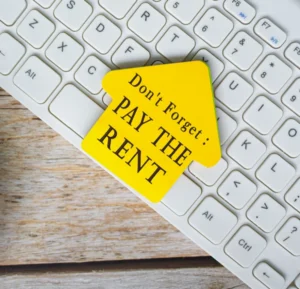
25 Questions Every Landlord Should Ask Potential Tenants
The tenant selection process can be very unpredictable. Sometimes, you might get lucky with your first applicant. Other times, you might have to screen multiple candidates before finding the right match for your rental.
Whether you screen one applicant or one hundred, it’s important to follow a detailed tenant screening process to ensure you find the best fit. By asking the right questions and following the correct screening protocols, you’ll find a trustworthy tenant who respects you and your property throughout their lease.
Below, we’ve compiled a guide on how to properly screen potential tenants, including the best screening practices and questions to ask your applicants.
Why Tenant Screening Is Important
As a landlord, you want to be sure your property is in good hands. However, it’s hard to be certain of someone based on their application alone. Rather, it takes an entire, comprehensive screening process to accurately judge a candidate and their ability to be a good tenant.
Tenant screening is important because it provides relevant details about candidates that directly affect you as a landlord. For example, what does this applicant do for a living? Can they afford rent? Do they have a strong proof of income? A tenant screening will answer all your vital questions and help you make informed decisions about applicants.
Skipping the tenant screening process is a huge risk. Without a strong vetting process, you won’t be able to predict your tenant’s behavior. For example, a tenant might have a history of paying rent late or damaging property. A screening would reveal these behaviors through the applicant’s landlord references and hopefully trigger your alarm bells.
If you’re tempted to skip the screening process, first consider the following risks:
Eviction costs
Eviction is not something a landlord ever wants to do. However, it can be necessary with problematic tenants who refuse to comply. For a landlord, evictions can be quite a costly process. According to a study by TransUnion, the average eviction costs $3,500 and can take up to a month to complete. So, maybe save yourself the financial trouble and weed out problem tenants before it’s too late.
Loss of profitability
Evicting a tenant creates a domino effect of issues, one of which is loss of rental income. If your property is left unoccupied for some time, you’ll have to eat the monthly mortgage costs. Essentially, the longer your property is vacant, the longer your rental income will stay at zero. That said, it’s best to lock in a trustworthy tenant who you can retain for years to come. That way, you won’t have to worry about costly vacancies hurting your profitability.
Expensive repairs
As mentioned above, irresponsible renters pose a higher risk of property damage. For you, this could mean a series of costly repairs, from broken appliances to stained carpets. Depending on the severity, these repair costs can really add up and take a toll on your finances. Not to mention the time and energy you’ll need to invest to hire contractors and oversee their work.
Free Rental Application
Get 20 Rental Forms for FREE, including a rental application.
Understanding the Tenant Screening Process
Tenant screening is a multi-step process that takes some time and patience. However, it’s well worth the investment, as it’s the best way to verify applicants and guarantee a respectful, trustworthy occupant for your property.
Read below as we break down each step to sharpen your understanding of screening rental applicants.
Review the tenant’s application
First things first, your tenant screening will always start with a rental application review. Here, you will review the candidate’s application to record their basic information, such as their contact details, current and previous employers, yearly income, type and number of pets, if applicable, and employer/landlord references.
Check fair housing laws
Next, you’ll review fair housing laws to ensure your screening process doesn’t discriminate against certain groups. The Fair Housing Act prohibits landlords from discriminating against rental candidates based on race, color, religion, sex, national origin, disability, or familial status. Additionally, your state and local laws might have discriminatory policies, like protecting candidates based on their gender identity or sexual orientation.
Conduct a background check
Your next step will be to run a background check on your applicant. This report will verify an applicant’s identity and gather information about their rental history, financial stability, criminal record, and other relevant factors. A thorough background check will minimize your risk of selecting an irresponsible renter and give you peace of mind that your tenant is who they say they are.
Check criminal record
Criminal history is something you should look out for on a background check. If the applicant has a concerning past, they might be a threat to you, your neighbors, and your property. However, remember that criminal history should be assessed on a case-by-case basis. A minor offense from ten years ago might not necessarily disqualify a candidate completely.
Although a clean criminal record is ideal, you should primarily be concerned with felony charges. If minor incidents are on their record, consider requesting additional references to verify their character and credibility. Remember that you can’t deny applicants just because they have a criminal history. You can only deny them if they pose serious safety concerns for your property.
Review rental history
Rental history is another big-ticket item on background checks. This will give you an idea of what it’s like to rent to an applicant. Do they pay rent in full and on time? Have they been evicted before? Can you trust them to abide by the terms of their lease? You’ll get all these answers when you review an applicant’s rental history, which will help you ultimately decide whether they’d be a good fit for you and your property.
Run a credit check
A credit check is next in the background check line-up. Credit checks reveal an applicant’s credit score and financial history. If a candidate’s score leaves room to be desired, check their payment history. If they have a pattern of maxing out credit cards, taking out large loans, or keeping unpaid balances, they might not be financially responsible enough to make their monthly rent payments.
Look at employment history
Employment history can say a lot about a potential tenant. If they have maintained a steady job for some time, that shows not only that they’re reliable and hardworking but also that they have a stable source of income. However, if they’ve jumped from job to job or have been unemployed for a period of time, there could be reason to second-guess their application.
Renters will provide their employer and supervisor’s contact information on their rental application. They might also provide employer references, which you can use to verify their employment and get a first-hand account of their character and work ethic. Verifying these details is crucial to ensure a tenant’s reliability and financial standing.
Request proof of income
Requesting proof of income is the final step of the tenant verification process. Applicants must provide bank statements, pay stubs, or job offer letters to verify their financial standings. Landlords use this step to check whether an applicant can afford their monthly rent. Typically, they’ll require tenants to make at least three times the monthly rent, as this minimizes the risk of late or partial payments.
25 Questions You Should Be Asking Rental Applicants
Now, let’s move on to the part you’ve all been waiting for: the questions! These could be things you ask on a rental application, in a tenant interview, or both. These questions can be as general or specific as you’d like, ranging from questions about their income to their regular living habits. This is your chance to learn everything you want to know directly from the renter.
Below is a list of 25 tenant screening questions to ask on rental applications or during pre-screening interviews:
-
Do you currently rent? If so, where?
-
When do you plan to move out of your current home?
-
Why are you moving from your current home?
-
What are you looking for in a new place?
-
Do you have a pet? If so, describe their type, breed, and typical behavior.
-
Are you aware of our pet deposit/pet rent charges, and are you willing to abide by them?
-
How many parking spaces would you need?
-
How long have you lived in your current home?
-
Have you ever been evicted?
-
Have you ever broken a lease agreement?
-
Can I request a reference from your current or former landlord?
-
How many people will be living in the unit?
-
Will everyone living with you be able to pass a criminal background check?
-
Do you or anyone living with you smoke?
-
Do you have frequent overnight guests?
-
Where do you currently work?
-
How long have you worked there?
-
Do you foresee any interruption in your income and ability to pay rent?
-
Will you submit to a credit check?
-
Have you recently filed for bankruptcy?
-
Can you provide evidence of your monthly income?
-
Can you pay the mandatory fees and deposits upon signing the lease?
-
Should I know anything before I run a criminal background check?
-
Will you sign a (x) year lease agreement?
-
Do you have any questions for me?
Red Flags to Watch Out For
In a perfect world, your potential tenant passes their background check with flying colors. However, this won’t always be the case. If an applicant has something to hide, their background check will bring it to the surface. Whether it be insufficient income, criminal history, or past evictions, be alert of potential red flags like the following:
- Low credit score
- False references and contact information
- Felony charges
- History of evictions
- Conflict of interest references, such as friends or family members
- Lower income than what was reported on their application
- History of frequent moving
- History of getting fired often
- Rush to move in
- Offer of advance payment
- Over-denial of background check findings
Questions You Can’t Ask Rental Applicants
Before you start screening tenants, you should know that there are certain questions you cannot ask. As mentioned earlier, fair housing laws protect rental applicants from discriminatory practices based on race, color, religion, sex, national origin, familial status, and disability. That said, asking questions about any of these protected traits is prohibited.
Though you might be asking with the best intentions, tenants might feel discriminated against when asked the following questions:
- What is your religion?
- Will you be looking for a church in the area?
- Where were your parents born?
- Were you born in the US, or did you move here?
- Do you have children?
- Are you pregnant or planning to become pregnant?
- Are you married?
- What is your sexual orientation?
- Are you disabled?
- Will you need special accommodations for a disability?
Source: Apartments.com













 Accessibility
Accessibility